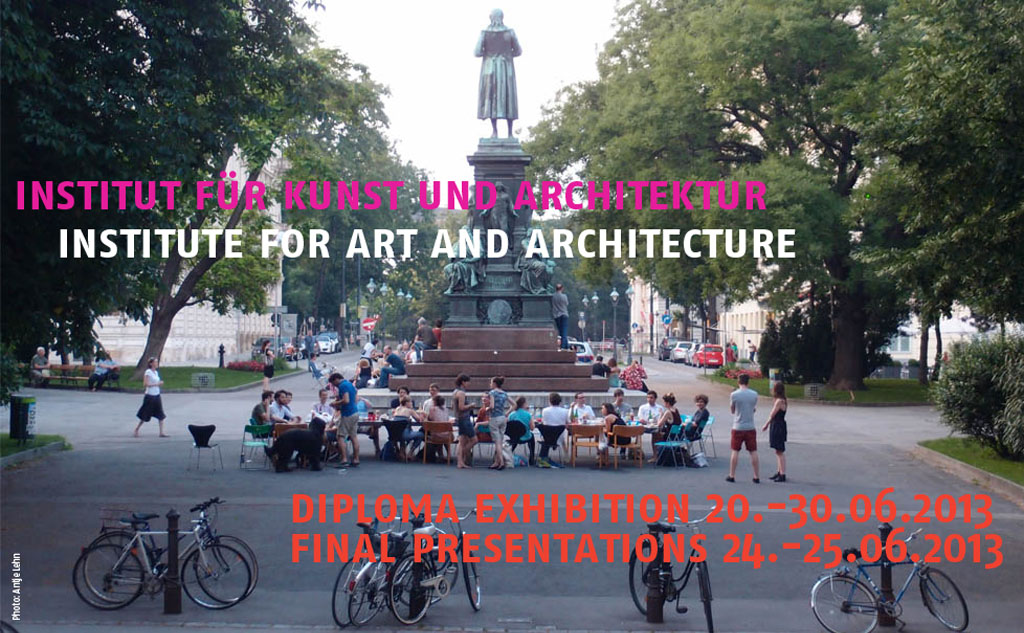24-06-13 // BERND UPMEYER IS GUEST CRITIC AT THE ACADEMY OF FINE ARTS VIENNA

Bernd Upmeyer has been invited to be guest critic at the final reviews at the Academy of fine Arts Vienna on Tuesday the 25. June from 9:30-16:30 (R208).
The reviewed “MArch Studio”, entitled “Collaborative Cities: Prototypes for the Sharing Economy”, is led by Stefan Gruber.
Studio description:
“Imagine no possessions, I wonder if you can…” John Lennon (1971)
Property relationships permeate and define human interactions in small and big ways, and yet ownership is an elusive concept–a mere social convention prone to constant change. Today, in a historic convergence of events, three main forces are challenging the very idea of ownership giving way to temporary access and redefining prevailing notions of the private and public sphere: (1) As Capitalism sheds its material origins we are entering an Age of Access where all of life becomes a paid-for experience (Rifkin, 2001). Meanwhile the apparent flaws of capitalism and governments’ austerity regimes have sparked bitter protest, but also many initiatives of civic empowerment seeking alternate forms of collaboration. (2) Pressing global environmental issues and dwindling natural resources underline how beyond the dichotomy of private and public, Market and State, the key question becomes how individual interests can be articulated in such a way as to constitute common interests.
Thus the Global Commons fuel the discourse on cooperation and alternative economies with urgency. (3) Here more than ever social change and technological innovation seem intertwined: The Web 2.0 and location-aware communication enable individuals to self-organize, forming trans-local networks that posses the swarming intelligence, real-time flexibility and clout to challenge multi-national corporations and governments alike. Thus online Peer-to-Peer platforms have given rise to radically new forms of production based on reciprocity. Beyond the virtual realm the so-called Sharing Economy is starting to fundamentally redefining the way we live in cities and may conceive of urban resources.
Each form of capitalism has brought about distinct architectural typologies and ultimately, new types of cities: be it the Parisian shopping arcade in relation to 19th century rising bourgeoisie, or its post-war pendant, the mall in relation to the suburban middle class. In this studio we will speculate on the implications of late Capitalism: based on selected current economic models ranging from hyper- to anti-capitalism, from Product-to-service to P2P-platforms, students will develop and design an architectural prototype for the Sharing Economy.
With the design of Sharing Hub Projects we will explore how Architecture can catalyse alternate urban futures and new spaces of commoning.
The accompanying Project Seminar will provide an economic, political and cultural introduction to related theories by authors such as Harvey, Mouffe, Castells, Felber, Botsman and Rogers amongst others. Based on the texts we will produce a glossary for the Sharing Economy. More importantly these readings should help articulate a design agency. We will further research the history of sharing and create five time-lines that will help define the program for the respective projects. Finally we will study selected precedents of spaces of commoning with a focus on part-to-whole relations and devise diagramming techniques that become generative for the design.